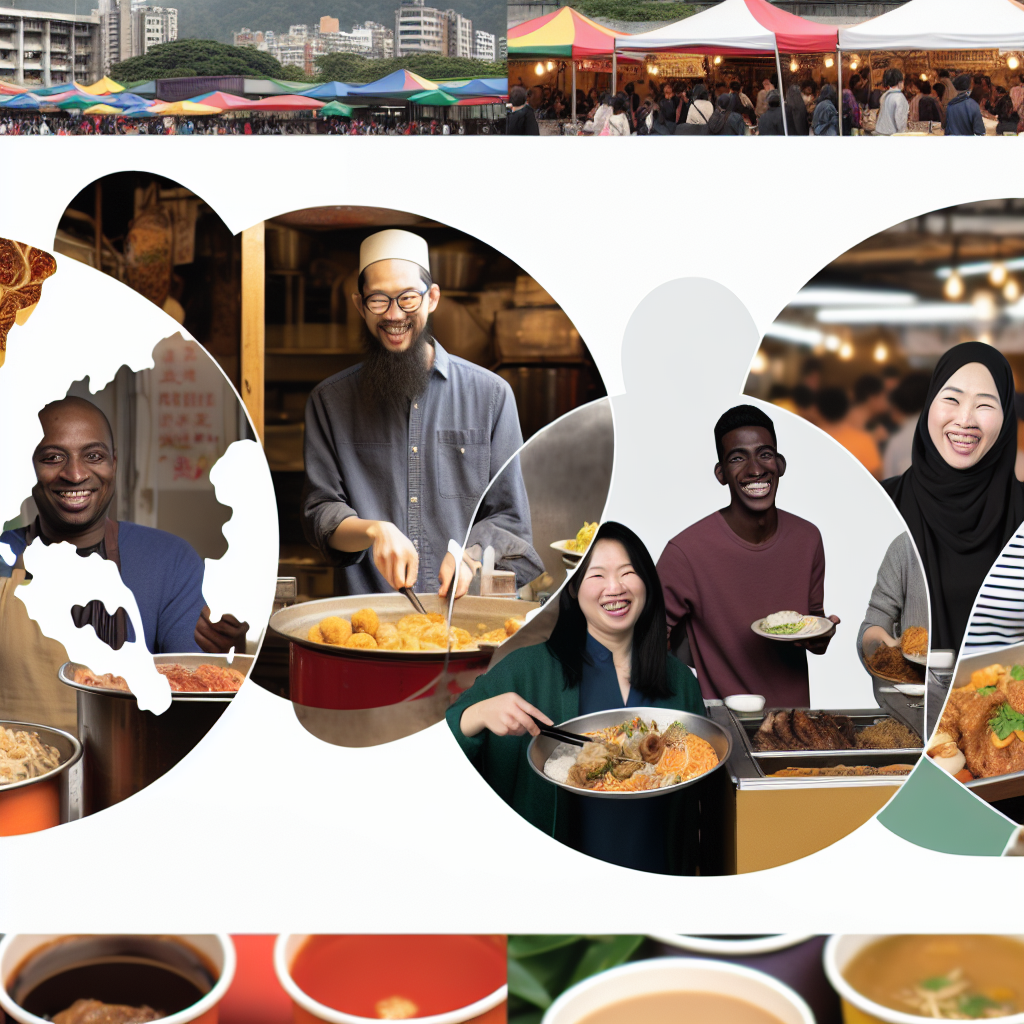Taiwan’s Culinary Tourism Initiative Showcases Regional Food Entrepreneurs
Taiwan, renowned for its vibrant street food culture and diverse culinary heritage, has recently launched a groundbreaking initiative aimed at promoting regional food entrepreneurs through culinary tourism. This program not only highlights the island’s rich gastronomic traditions but also empowers local businesses, fostering economic growth and cultural preservation. As Taiwan continues to attract food enthusiasts from around the world, this initiative serves as a model for how culinary tourism can be leveraged to support small-scale entrepreneurs and regional specialties.
Understanding Taiwan’s Culinary Tourism Initiative
The Taiwanese government, in collaboration with local tourism boards and industry stakeholders, introduced the Culinary Tourism Initiative in 2022. The program’s primary goal is to create a sustainable platform that connects travelers with authentic regional food experiences while supporting local food entrepreneurs. By focusing on lesser-known culinary destinations beyond Taipei and Kaohsiung, the initiative encourages visitors to explore Taiwan’s diverse food landscape.
Key components of the initiative include:
- Curated food trails that highlight regional specialties and local producers.
- Workshops and cooking classes led by local chefs and artisans.
- Marketing support and training for small food businesses to enhance their visibility and service quality.
- Collaboration with travel agencies to integrate culinary experiences into broader tourism packages.
Showcasing Regional Food Entrepreneurs
One of the most compelling aspects of Taiwan’s Culinary Tourism Initiative is its focus on empowering regional food entrepreneurs. These small-scale producers and restaurateurs often operate in rural or less-visited areas, preserving traditional recipes and food production methods that might otherwise be lost.
For example, in Taitung County, the initiative has spotlighted indigenous Amis food entrepreneurs who offer unique dishes such as millet wine and wild vegetable stir-fries. These entrepreneurs not only provide authentic culinary experiences but also educate visitors about indigenous culture and sustainable food practices.
Similarly, in Miaoli County, local Hakka food artisans have been featured for their traditional rice dumplings and preserved vegetables. Through the initiative, these entrepreneurs have gained access to new markets and increased tourist footfall, boosting their income and encouraging younger generations to continue family culinary traditions.
Impact on Taiwan’s Tourism and Economy
The Culinary Tourism Initiative has had a measurable impact on Taiwan’s tourism sector. According to the Taiwan Tourism Bureau, regions participating in the program have seen a 15-20% increase in visitor numbers since its launch. Moreover, surveys indicate that 70% of tourists engaged in culinary tours reported higher satisfaction with their travel experience, citing authentic food encounters as a key highlight.
Economically, the initiative has helped diversify income sources for rural communities. By promoting local food products and experiences, it has created new job opportunities and encouraged entrepreneurship. The program also aligns with Taiwan’s broader goals of sustainable tourism, reducing the environmental footprint by promoting local sourcing and minimizing food waste.
Challenges and Future Prospects
Despite its successes, the initiative faces challenges such as ensuring consistent quality across diverse food providers and managing the balance between tourism growth and cultural preservation. Additionally, the COVID-19 pandemic temporarily disrupted travel patterns, prompting organizers to explore digital platforms for virtual culinary experiences.
Looking ahead, Taiwan plans to expand the initiative by incorporating more technology-driven solutions, such as augmented reality food tours and online marketplaces for regional products. There is also a focus on fostering international collaborations to attract a broader audience and position Taiwan as a premier culinary destination in Asia.
Conclusion
Taiwan’s Culinary Tourism Initiative exemplifies how a strategic focus on regional food entrepreneurs can enrich the travel experience while supporting local economies and cultural heritage. By showcasing authentic culinary traditions and empowering small-scale producers, the program not only enhances Taiwan’s appeal as a food destination but also promotes sustainable and inclusive tourism development. As the initiative evolves, it offers valuable lessons for other countries seeking to harness the power of food tourism to drive economic growth and cultural exchange.





